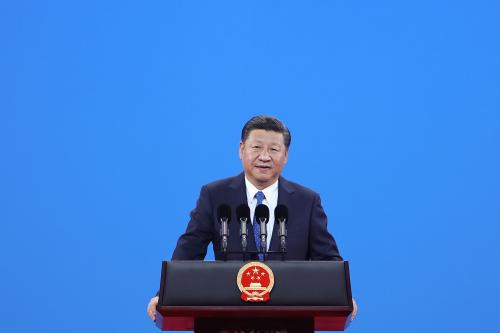


How do President Xi Jinping’s personal ambitions and the ascendance of the Chinese Communist Party affect China’s approach to foreign policy?
Authors: Tarun Chhabra, Ryan Hass
This installment of the Brookings Foreign Policy series “Global China: Assessing China’s Growing Role in the World” helps illuminate China’s domestic trends in law and leadership politics that may inform China’s trajectory.
Related Content

Tarun Chhabra, Ryan Hass
September 30, 2019
Authors: Cheng Li
Making sense of the prospects for a global China requires understanding Xi Jinping’s domestic political standing and policy priorities.
Related Content
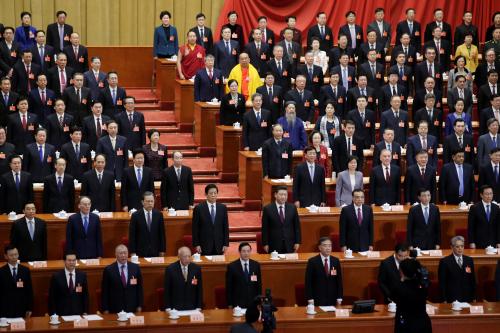
Cheng Li
September 30, 2019
Authors: Jamie P. Horsley
The Chinese Communist Party maintains a dual state and legal system, under which most Chinese people generally enjoy the protection of an increasingly sophisticated body of law. But the party’s resort to extra-legal means in dealing with perceived enemies creates uncertainty over the reliability of the party-state’s legal commitments both at home and abroad.
Related Content
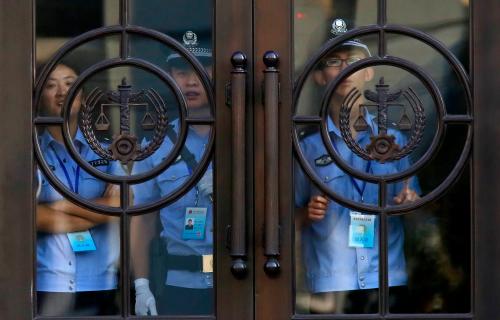
Jamie P. Horsley
September 30, 2019
Authors: Rush Doshi
Rush Doshi argues that China has a longstanding commitment to its current assertive path — and that it did not start with Xi Jinping.
Related Content
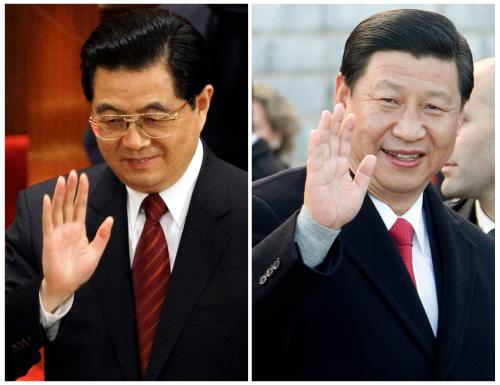
Rush Doshi
January 22, 2019
Authors: Joseph Torigian
Joseph Torigian explains how Xi Jinping has consolidated power over Chinese foreign policy.
Related Content
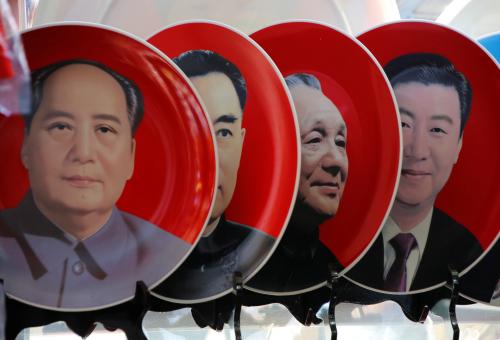
Joseph Torigian
January 22, 2019
Authors: George Yin
Xi Jinping’s handling of economic policy and U.S.-China relations poses real risks for his domestic standing, argues George Yin.
Related Content
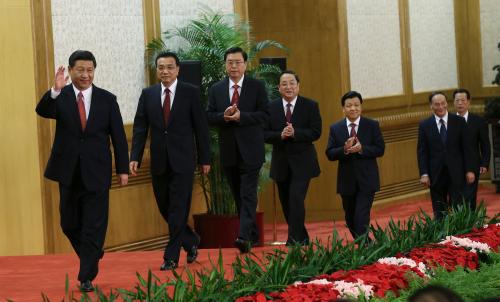
George Yin
January 22, 2019
Authors: Erin Baggott Carter
Erin Baggott Carter contends that there is strong evidence that Xi Jinping could respond to challenges from within through diversions abroad.
Related Content

Erin Baggott Carter
January 22, 2019
Authors: Andrew Chubb
China has been aggressively consolidating control over contested territories in the South and East China seas since at least 2006 — well before Xi Jinping took power, writes Andrew Chubb.
Related Content
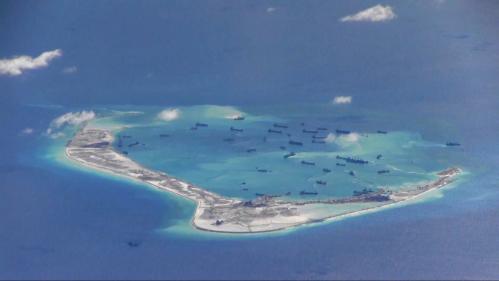
Andrew Chubb
January 22, 2019
Authors: David O. Shullman
China seeks to influence developing countries across the globe, in part because of the Chinese Communist Party’s longstanding obsession with preserving its rule, according to David Shullman.
Related Content
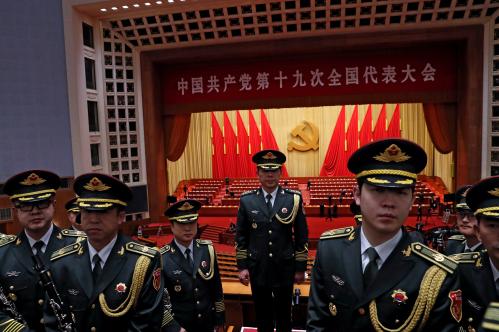
David O. Shullman
January 22, 2019
Authors: Audrye Wong
Chinese economic statecraft like the Belt and Road Initiative is sometimes effective, sometimes not, argues Audrye Wong.
Related Content
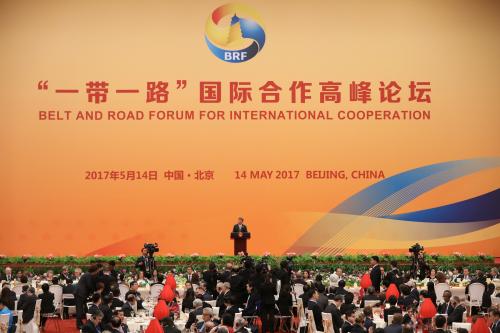
Audrye Wong
January 22, 2019
Authors: Ketian Vivian Zhang
Ketian Vivian Zhang details how China uses non-military coercion to pressure other countries.
Related Content
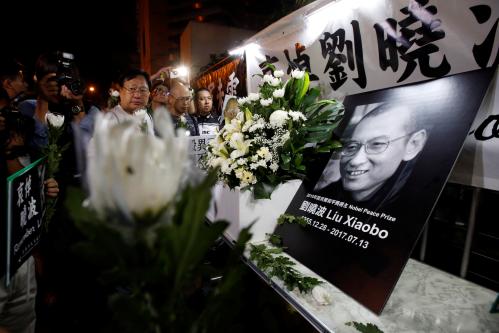
Ketian Vivian Zhang
January 22, 2019
Authors: Abigail Grace
Under Xi Jinping, China has increased its regional security engagement — Abigail Grace explains what is behind it and what it means.
Related Content

Abigail Grace
January 22, 2019